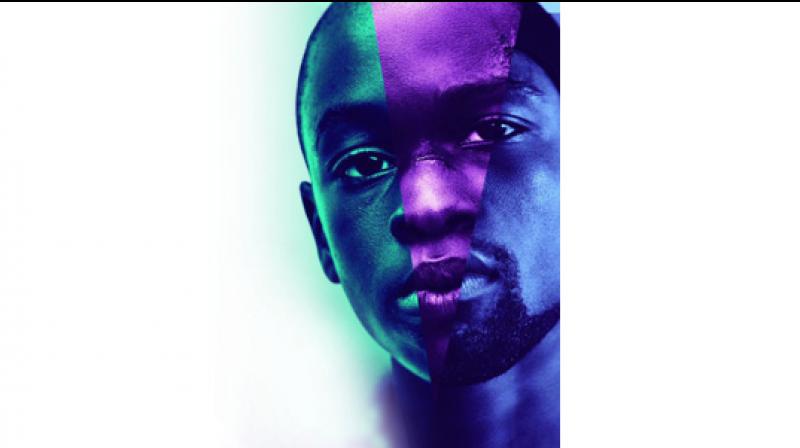Moonlight movie review: Lyricism unites with imagery

Cast: Trevante Rhodes, Alex Hibbert, Mahershala Ali, Naomi Harris, Janelle Monae
Director: Barry Jenkins
In less than 15 minutes, Moonlight unfolds to reveal a group of young black boys, huddled together to play American football. Mozart’s Vesperae Solennes is rudely interrupted by the blaring horn of a train passing nearby; as the camera pans away we see that the ball is really a wad of newspapers. The boys gang up on the most vulnerable player — our protagonist — the tiniest and the easiest person to pin down. The instinct to hunt him down on account of his non-masculine behaviour, and the poverty that became the lot of the black community in 1980s Miami post-riots is distilled in this seemingly innocent, ordinary game of football. What follows, however, is more memorable in its sensuality in the way it kindles a fire at the touching of two bodies. Arm in arm, cheek against neck — two 11-year-olds wrestling, tussling on the grass — not with an aim to injure, but to prove toughness to the object of desire.
Barry Jenkins’ Moonlight follows a simple narrative structure to tell the story of Chiron Harris coming to terms with his black, gay identity. The strongest operative feature of the film is the gaze. Juan (Mahershala Ali) parks his car to meet a fellow drug supplier. He furtively looks across his shoulder; the camera revolves with him twice — a complete 720 degrees — to take in his view. His swimming lesson with Juan, very baptismal in its imagery, is perhaps the most iconic moment. But Moonlight remains, for a large part, silent. It looks for joy in simple, humane acts, which reinforce that the depth of human interaction must go beyond a phone call or a message.
Life is worth living when there is someone who understands you, who hears what you do not say. It is about cooking a meal for someone. Little bonds with Teresa over the dinner she prepares with affection. In her nurture, he finds a mother who does not exist spiritually in Paula. Driving from Atlanta to Miami is worth the effort when you get to break bread with an old friend. Juan becomes a father figure to Little and like every parent, strives to be just good enough. As with Little/ Chiron /Black, we see in Juan, too, a conflict with regard to his black masculinity — a tussle between the need to rule the streets, peddling drugs, and an instinctive longing to raise this boy as his own son. How tough must one be in order to be man enough?
The writer is programmer, Lightcube Film Society

